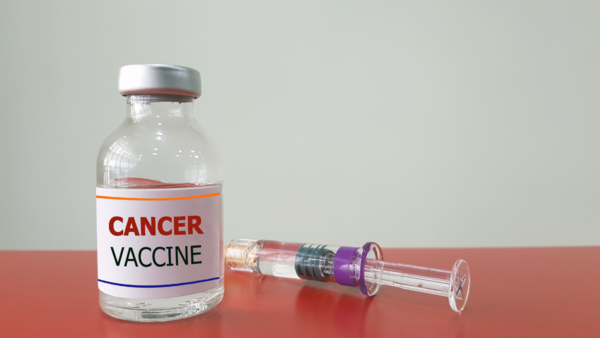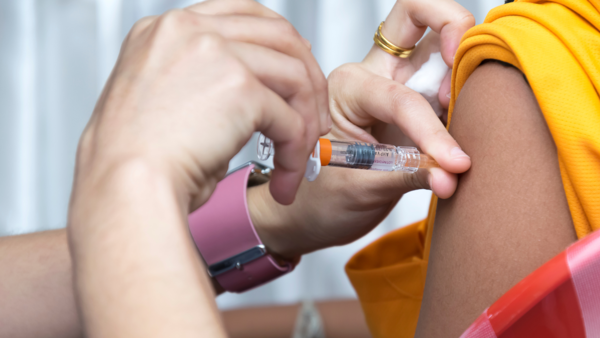Although creating customized injections for each patient presents a number of difficulties and requires time, it is hoped that in the future, the process would go more quickly. After decades of research, scientists and physicians are finally beginning to observe tangible advantages for patients with cancer vaccines.
In a medical breakthrough, Australian researchers will have access to patient-specific cancer vaccinations thanks to a new facility at The University of Queensland. The Australian Institute for Bioengineering and Nanotechnology (AIBN) at the University of Queensland (UQ) will house the tools and knowledge necessary to develop, produce, and distribute novel mRNA cancer vaccines.
The new hub will supply the local research community with vaccines that are tailored to each patient’s unique treatment needs thanks to a $3.3 million funding from the Medical Research Future Fund’s (MRFF) National Critical Research Infrastructure program.

Research scientists are pioneering personalized vaccines to combat cancer, focusing on breast cancer to prevent tumor recurrence, which is typically more aggressive and difficult to treat.
The BASE facility’s deputy director, Dr. Seth Cheetham, stated that it has the potential to revolutionize cancer therapy.
“To train the body’s immune system to recognise and eradicate cancer cells, personalised mRNA cancer vaccines are now being used,” Dr. Cheetham stated.
What are cancer vaccinations?
Immunotherapy includes cancer vaccinations. Cancer vaccinations treat patients who already have the disease, as opposed to immunizations that guard against an infection, as the Covid-19 shot. They are intended to assist the patient’s immune system in identifying, eliminating, and stopping the spread of cancer cells.
How are vaccinations for cancer made?
Each person’s jabs are made specifically for them, usually in a matter of weeks. In order to create them, a surgical sample of the patient’s tumor is taken out, and then DNA sequencing and, occasionally, artificial intelligence are used. A customized anti-cancer injection tailored to the patient’s tumor is the end product.
Despite the enormous potential, Australian researchers lack the resources to create these vaccines, which has left a significant hole in the country’s medical development pipeline. This lab alters that by housing a top research team in a purpose-built facility and collaborating with academia and local industry to advance a variety of high-quality mRNA cancer vaccine candidates from design to preclinical evaluation in order to facilitate future clinical trials.”
What types of cancer can they treat?
Researchers are examining a wide range of cancer vaccines and their potential efficacy against various cancer types. To fully understand the effectiveness of the vaccinations and the types of tumors they may be able to treat, more research is required. Experts think they might work well for a variety of tumors, such as kidney, bladder, pancreatic, lung, and colorectal cancer.
Additionally, physicians have started testing the first tailored mRNA cancer vaccine for melanoma in history. Experts praised its “game-changing” ability to end skin cancer permanently. According to a phase 2 research, the vaccinations significantly decreased the chance of melanoma patients’ cancer returning.

How were the personalized vaccines developed by the doctors?
Once the patient got chemotherapy after his tumor was surgically removed. His tumor was analyzed to find mutations unique to his malignancy in order to build his customised vaccination. Subsequently, at University Hospitals Birmingham NHS foundation trust, one of six sites involved in a BioNTech colorectal cancer vaccination experiment, he received his injection. The Pfizer/BioNTech Covid vaccine was created using the same mRNA technology that was utilized in its creation.
By when can these cancer vaccinations be available?
By late 2024, the mRNA cancer vaccine hub should be up and running at BASE. These efforts, covered in the latest episode of Tomorrow’s Cure by Mayo Clinic, involve experts like Dr. Keith Knutson, Dr. Saranya Chumsri, and Dr. Nora Disis. Their work aims to understand why some breast cancer tumors evade the immune system and how to redirect immune responses to fight cancer effectively.Vaccines, traditionally used against deadly viruses, are now being explored to fight cancer.
Trials are targeting aggressive forms like triple-negative and HER2-positive breast cancers, known for their high recurrence rates. Dr. Chumsri explains the complexity of this challenge:”I think the tricky part is trying to activate our immune system to be able to recognize that particular cancer. It’s different in different types of cancer. I think in breast cancer, it might be difficult for the immune system to generate the effective immune response, but that’s what we all try to work for.
Multiple approaches are being tested to send out immune alerts. Dr. Knutson highlights one such method:”We have a number of different approaches that we’re using. So, for example, we have peptide vaccines that are administered with this danger signal so that we can alert the immune system to respond.
Dr. Disis discusses the future potential of vaccines to target cancer risk factors such as chronic inflammation, thereby reducing cancer development risks:”We’re actively working on vaccines targeting cancer risk factors like chronic inflammation. So this would potentially be able to reduce their risk of development of cancer by controlling that chronic inflammation.”The research aims not only to treat existing cancer but to prevent it by tackling underlying risk factors. The work being done by these researchers could represent a significant breakthrough in how cancer is approached in the medical community.For further details on these advancements, the latest episode of Tomorrow’s Cure provides an in-depth look at the ongoing efforts and insights from leading experts.
Are You Concerned About Bone Cancer And Your Family History? Oncologist Explains The Risk

